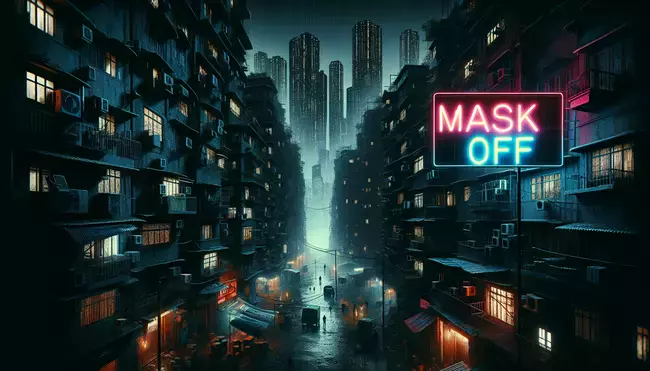Behind the Facade: Unveiling the Authentic Self | Mask Off | Future
 AI Artistic interpretation of Mask Off by Future
AI Artistic interpretation of Mask Off by Future
"Mask Off," a gold standard single from Future's eponymous album, unfurls an intriguing storyline that can be interpreted on numerous levels. Released in 2017, the song surpassed the Pop and R&B charts, beckoning listeners to dive into an underworld of intoxicating beats and cryptic phrases. Future, an American rapper known for blending together various elements of rap, manages to showcase his experiences with street life in a sensitive and almost poetic manner throughout the song.
The lyrics of "Mask Off" are replete with references to drug use. Future doesn't shy away from the harsh realities of drug culture often present within certain realms of society. Instead, he chooses to present this stark reality through addictive melodies and beats. Lyrics such as "Percocets, Molly, Percocets" touch upon not just the use, but also the often overlooked psychological dependence on these substances. Paired with an uncut look at his life, these lyrics present a grim narrative that's all too real for many.
Yet, there's another level of interpretation to "Mask Off." Beyond the superficial drug references and catchy tune, there lies a narrative of authenticity and unmasked reality. Future talks about how fame has forced him to often mask his true self. The phrase "Mask Off" suggests the process of baring oneself, of being true and open about one's identity. Leaving behind pretenses and exhibiting the real persona behind the performer is a vulnerable act, one that Future seems to courageously undertake through this song.
In the chorus, "Chase a check, never chase a btch*," Future may be emphasizing his priorities. The line suggests that he maintains focus on his career, income, and financial stability, rather than distracting himself with romantic pursuits or controversies.
In addition, it is important to notice the recurrent flute melody, a sample from "Prison Song" by Tommy Butler, a theatre song from the 70s addressing racial injustice. This connection intensifies the depth of "Mask Off" by highlighting the complex struggles within African-American communities. It adds another layer to the song, subtly pointing to the systemic problems that may lead to the depicted drug culture and hardship.
"Mask Off" can also be seen as a cultural commentary, one that not only encapsulates social issues through its words but also incites reflection in listeners about the reality of fame. Future's decision to use his platform to shed light on these matters shows his commitment towards generating dialogue and understanding around issues largely ignored.
In conclusion, "Mask Off" is not a simple braggadocious trap anthem, but a raw reflection of Future's life and the realities harboured within segments of society. The song invites us to contemplate the need for authenticity amidst a world saturated with facades. Future's unflinching portrayal of his experiences and choices creates a powerful narrative of reality, presenting a tale that grips the listener at every beat. Amid the melodies, "Mask Off" raises poignant questions about the nature of our society and the personas we adopt within it. The paradox of the song lies in this confrontation between the addicting beats and the stark reality it portrays. Drawing its strength from this paradox, "Mask Off" becomes a powerful societal mirror, whose reflection is not easily avoided.

